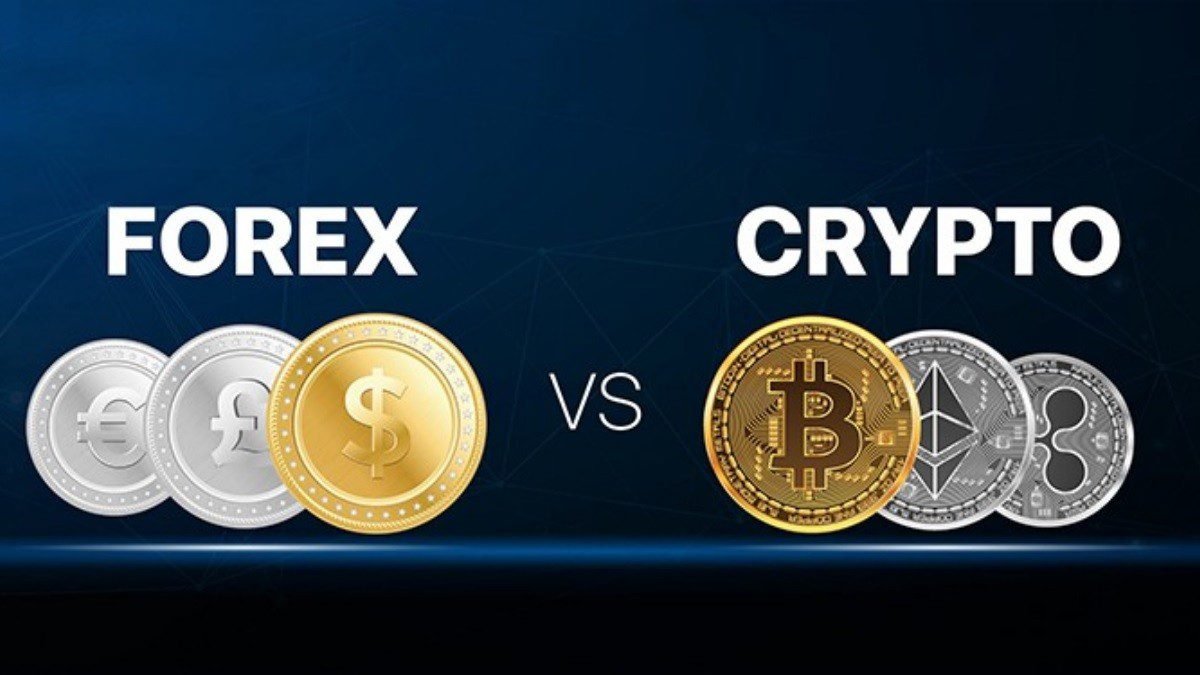WHICH IS BETTER BITCOIN VS FOREX TRADING?

Navigating the world of online trading can feel like standing at a crossroads, with countless paths promising financial gain. Among the most talked-about routes are Bitcoin vs Forex trading. Both offer the thrilling potential for profits, but they are fundamentally different beasts, each with its own set of characteristics, risks, and rewards. The question isn’t simply which is “better,” but rather which aligns more with an individual trader’s style, risk tolerance, and goals.
Forex, or Foreign Exchange, trading involves speculating on the price movements of national currencies. It’s a colossal, well-established market. Bitcoin trading, on the other hand, deals with the first and most prominent cryptocurrency, a decentralized digital asset built on blockchain technology. Understanding these core distinctions is paramount before deciding on Bitcoin vs Forex trading.
Market Size and Liquidity: The Scale of Operations
One of the most striking differences between Bitcoin vs Forex trading lies in their sheer size and liquidity.
- Forex Dominance: The Forex market is by far the largest financial market globally, with daily trading volumes often exceeding $7 trillion. This immense size translates into extremely high liquidity, especially for major currency pairs like EUR/USD or USD/JPY. High liquidity means you can usually enter and exit trades quickly without significantly impacting the price. This makes Forex trading very efficient for large transactions.
- Bitcoin’s Growing but Smaller Pool: While Bitcoin is the most liquid cryptocurrency, the overall crypto market’s daily volume is considerably smaller than Forex. Liquidity for Bitcoin can vary, and for smaller altcoins, it can be significantly lower. This lower liquidity in Bitcoin trading can sometimes lead to larger price swings and slippage (where your order executes at a different price than intended), especially during volatile periods.
When considering Bitcoin vs Forex trading, the sheer depth of the Forex market offers a sense of stability and predictable entry/exit points that the crypto market, despite its growth, cannot yet fully match.
Volatility and Profit Potential: The Highs and Lows
This is where the debate between Bitcoin vs Forex trading truly heats up for traders seeking significant gains.
- Forex’s Measured Movements: The Forex market is generally less volatile than crypto. Currency pairs typically move in smaller percentages (e.g., 0.5% to 1% per day for major pairs). While this might seem less exciting, it allows for more predictable technical analysis and often appeals to traders who prefer steadier, more managed risk. Forex trading profits often rely on consistent, smaller gains amplified by leverage.
- Bitcoin’s Wild Swings: Bitcoin, and cryptocurrencies in general, are notorious for their extreme volatility. Price swings of 10-20% or even more in a single day are not uncommon. This high volatility presents both immense profit potential and significant risk. Traders in Bitcoin trading can make substantial gains quickly, but they can also incur rapid and significant losses. This characteristic is a defining factor in the Bitcoin vs Forex trading comparison.
Table of Contents
For traders with a high risk tolerance and an appetite for explosive moves, Bitcoin trading might seem more appealing. However, for those who prioritize stability and more measured risk, Forex trading tends to be the preferred option.
Regulatory Environment: Trust and Oversight
The regulatory landscape is another critical differentiator when discussing Bitcoin vs Forex trading.
- Established Forex Regulation: The Forex market benefits from well-established and mature regulatory frameworks across the globe. Bodies like the FCA in the UK, the SEC and CFTC in the US, and ASIC in Australia oversee Forex brokers, aiming to protect traders and ensure fair practices. This regulatory oversight instills a greater sense of security and trust in Forex trading.
- Evolving Crypto Regulations: The regulatory environment for cryptocurrencies, including Bitcoin, is still in its nascent stages and varies wildly from country to country. Some nations have embraced crypto with clear rules, while others have imposed outright bans or remain ambiguous. This lack of consistent and comprehensive regulation introduces additional risks for Bitcoin trading, including potential scams, market manipulation, and uncertainty regarding the future legal status of assets. The question of Bitcoin vs Forex trading often comes down to how comfortable one is with regulatory uncertainty.
The robust regulatory framework surrounding Forex trading offers a layer of investor protection that is largely absent or inconsistent in the current Bitcoin trading landscape.
Market Hours and Accessibility: The Clock Never Stops (Almost)
The operational hours and accessibility models also present key differences between Bitcoin vs Forex trading.
- Forex’s 24/5 Schedule: The Forex market operates 24 hours a day, five days a week, following the opening and closing of major financial centers around the world (Sydney, Tokyo, London, New York). This offers continuous trading opportunities during weekdays for Forex trading.
- Bitcoin’s 24/7 Availability: The cryptocurrency market, by contrast, operates 24 hours a day, seven days a week, 365 days a year. There are no official closing times. This continuous market for Bitcoin trading offers unparalleled flexibility, allowing traders to react to news and market events at any time. This round-the-clock access is a distinct advantage for those who want to trade outside traditional market hours.
For flexibility, Bitcoin trading offers unmatched availability. However, the 24/5 nature of Forex trading might suit traders who prefer to have weekends off from market monitoring.
Risk Management and Leverage: Amplifying Gains and Losses
Both markets offer leverage, which can amplify both profits and losses. However, the levels and implications differ when comparing Bitcoin vs Forex trading.
- Forex Leverage: Forex brokers typically offer very high leverage ratios (e.g., 1:500 or even higher). This means you can control a much larger position with a relatively small amount of capital. While tempting for magnifying gains in Forex trading, it also significantly magnifies potential losses, making robust risk management essential.
- Bitcoin Leverage: While leverage is available in Bitcoin trading, the ratios are often lower than in Forex due to the inherent volatility of cryptocurrencies. Still, using leverage in such a volatile market can lead to rapid liquidation of positions if the market moves against you. Risk management strategies become even more critical in Bitcoin trading.
Which is Better: Bitcoin vs Forex Trading?
There is no definitive “better” when comparing Bitcoin vs Forex trading. The choice hinges entirely on your individual trading profile.
- Choose Forex Trading if: You prefer a more regulated, stable, and highly liquid market. You are comfortable with moderate volatility and seek consistent, smaller gains. You appreciate the established infrastructure and investor protection.
- Choose Bitcoin Trading if: You have a high tolerance for risk and volatility, seeking potentially explosive gains. You are comfortable with a less regulated environment and 24/7 market access. You believe in the long-term disruptive potential of decentralized digital assets.
Ultimately, both Bitcoin vs Forex trading offer unique opportunities and inherent risks. A prudent approach for beginners is to start with a demo account in both, practice risk management, and understand the intricacies of each market before committing real capital. Understanding yourself as a trader is the first step to choosing the right path in the exciting world of digital finance.




